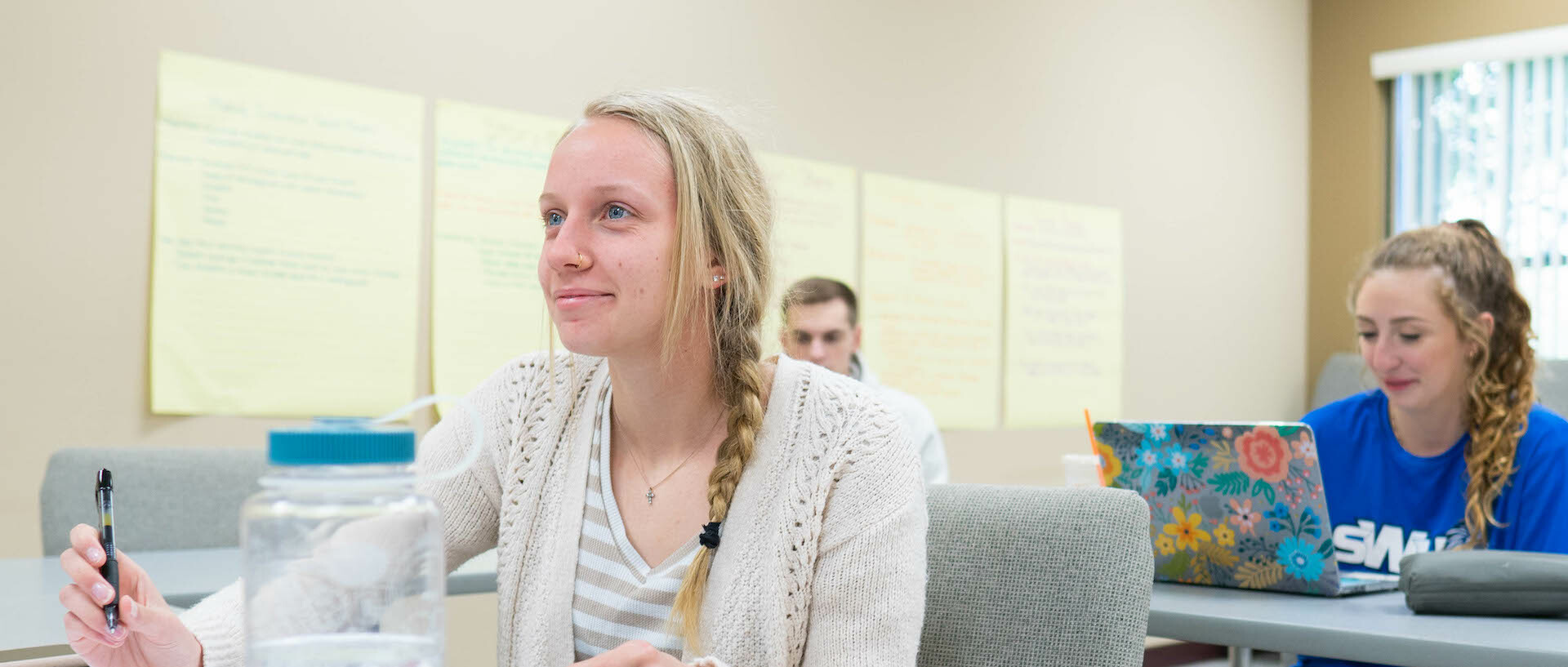
Social Science (BS)
Change the world—with social science.
Understanding how society and groups function is critical to making a difference in the world, and that’s what a BS in Social Science from SWU will prepare you to do. Whether you are interested in pursuing a graduate degree in fields like data science and law or taking your social science skills into the workplace, the academic, communication, critical thinking, and problem-solving skills you learn in the Social Science program will serve you well for life.
This flexible, broad-based degree is grounded in a Christian worldview and will give you a solid academic foundation for developing a sophisticated understanding of the social world. The highly customizable Social Science major will help you pursue your interests and career goals. Choose from concentrations in pre-law or general sociology.
Concentrations
The Law and Public Policy concentration will prepare you for work in the legal (e.g., paralegal or law studies) and public policy (e.g., political studies, government) fields. It introduces general areas of law and legal studies.
The General Sociology concentration is valuable for students who wish to understand more about society, including how different groups of people operate with and against each other to form societies and how these societies influence our daily lives economically (e.g., why is the unemployment rate so high/low?), politically (e.g., why is there antipathy between different political "tribes?"), and culturally (e.g., how does popular culture affect our perceptions?).
Graduate Study
- Data science
- Law
Career Paths
- Aid worker
- Child and family advocate
- Community outreach professional
- Department of Social Services
- International relations
- Justice system case manager
- Lawyer
- Nonprofit professional
- Political scientist
Graduates of the Social Science program will be able to:
- Use multiple theoretical and philosophical perspectives to interpret major long-term societal and social trends.
- Explain personal interactions and how social institutions develop using various theoretical and practical perspectives.
- Employ critical thinking and research skills for interpreting and contributing to current social science research, including performing basic statistical analysis and testing hypotheses.
- Engage in research and practice in the social sciences.
